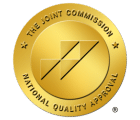Effective Strategies for What to Do If My Spouse is an Alcoholic
Discovering that your spouse is suffering from alcoholism can be a profoundly distressing experience, impacting not just their life but yours as well. The journey toward addressing this issue requires understanding, patience, and strategic actions. Knowing what to do if your spouse is an alcoholic is essential for their recovery and the health of your relationship. It is a challenge that requires love, boundaries, and, most importantly, the knowledge to navigate this delicate situation.
In this article, we will explore various strategies, starting with recognizing the signs of alcoholism in your spouse, followed by tips on how to talk to them about their drinking. We’ll delve into the importance of establishing healthy boundaries, seeking professional help, and why taking care of yourself is not just critical but necessary. These steps are guided toward helping you and your spouse find a path to recovery, balance, and well-being. Understanding the signs, knowing how to help your alcoholic spouse, and setting boundaries are crucial steps in dealing with this complex situation.
Recognize the Signs of Alcoholism in Your Spouse
Recognizing the signs of alcoholism in your spouse is crucial for addressing the issue effectively. Here are some indicators to help you determine if your spouse may be struggling with alcohol use disorder.
Obvious Signs
- Physical Symptoms: Noticeable signs include unexplained weight changes, broken facial capillaries, jaundice, and hand tremors, especially in the morning.
- Behavioral Changes: If your spouse is drinking despite the need to drive or operate machinery, or if they drink to the point of memory loss and blackouts, these are clear signs of alcohol abuse.
- Decreased Responsibilities: A decline in performance at work or home, such as missing important events due to hangovers, points to problematic drinking.
- Risk-Taking Behavior: Engaging in dangerous activities while under the influence indicates a disregard for safety due to alcohol consumption.
Subtle Indicators
- Social Preferences: Preferring to stay home to drink instead of attending dry events or choosing friends who also drink heavily can be subtle signs of alcohol dependence.
- Defensive Attitude: When confronted about drinking habits, if your spouse becomes overly defensive or lies about their alcohol consumption, take note.
- Mood Fluctuations: Watch for erratic mood swings or changes in behavior that correlate with drinking patterns.
- High Tolerance and Withdrawal: An unusually high tolerance to alcohol or experiencing withdrawal symptoms like shaking, sweating, and anxiety when not drinking is indicative of alcohol dependence.
Understanding these signs helps identify the problem early and can guide you in seeking the appropriate help for your spouse.
How to Talk to Your Spouse About Their Drinking
Best Approaches
- Choose the Right Time and Place: Ensure the conversation occurs when you are calm and can focus without distractions. It’s often best to speak when your spouse is sober and mentally healthy.
- Use “I” Statements: Frame the discussion around your feelings and concerns. For example, say, “I feel worried when…” instead of “You always…”
- Be Specific and Supportive: Clearly express your concerns with specific examples and offer your support. Suggest activities that do not involve alcohol, like walking or watching a movie together.
- Plan for Follow-Up: Set a time to revisit the conversation. This shows commitment to the process and provides an opportunity for encouragement and reassessment of goals.
What to Avoid During the Conversation
- Avoid Accusations: Use non-judgmental language and avoid blame. Phrases like “You’re always drunk” can make your spouse defensive.
- Don’t Use Labels: Avoid terms like “alcoholic,” which can carry stigma. Focus on behaviors and their impacts instead.
- Steer Clear of Ultimatums: Unless it’s a last resort, ultimatums can cause resistance and negativity. Focus on expressing concern about your spouse’s well-being.
- Avoid Emotional Confrontations: If emotions run high, take a break and revisit the discussion later. This helps maintain a constructive dialogue.
Establishing Healthy Boundaries
Establishing healthy boundaries with a spouse battling alcoholism is crucial for maintaining your well-being and protecting the relationship. These boundaries provide a framework for acceptable behaviors, ensuring your needs and emotions are respected.
The Importance of Boundaries
Boundaries protect you from harmful behaviors often associated with alcoholism, such as verbal abuse or irresponsible financial decisions. They also prevent enabling behaviors, where you might unintentionally support your spouse’s addiction by excusing their actions or taking on their responsibilities. By setting clear boundaries, you communicate that you will not tolerate or enable addictive behaviors, which can be a wake-up call for your spouse to seek treatment and begin their recovery journey.
Examples of Healthy Boundaries
- Verbal or Physical Abuse: Make it clear that abuse will not be tolerated.
- Excessive Drinking: Establish rules against drinking at home or during family times.
- Financial Responsibilities: Refuse to cover debts or expenses caused by drinking.
- Personal Space: Sometimes, taking time apart can help, such as sleeping in different rooms or taking separate vacations if needed.
Defining the consequences of crossing these boundaries is essential. For example, seeking support from a therapist or attending support group meetings like Al-Anon can be stipulated as necessary steps following boundary violations. Communicate these consequences clearly and calmly, emphasizing that they are not punishments but actions needed for maintaining a healthy relationship dynamic.
Seeking Professional Help
When your spouse is ready to address their alcohol use disorder (AUD), it’s crucial to know the types of professional help available and how to support them in seeking this help. Here are the essential steps to guide you through this process:
Types of Professional Help Available
- Counseling and Therapy: These can include individual sessions, group therapy, or family therapy to address the psychological aspects of addiction.
- Medication-Assisted Treatment (MAT): Medications like Acamprosate, Disulfiram, and Naltrexone may be used to help manage withdrawal symptoms and prevent relapse.
- Inpatient and Outpatient Programs: Depending on the severity of the alcohol use disorder, your spouse might require a structured program either as an inpatient or an outpatient.
- Support Groups: Encourage participation in support groups like Alcoholics Anonymous (AA) or Al-Anon for continuous community support.
How to Encourage Your Spouse to Seek Help
- Communicate Effectively: Openly discuss your concerns without judgment. Use supportive language and focus on the effects of their behavior rather than labeling them.
- Offer to Help with Research: Help find appropriate treatment facilities and understand their offerings, such as the types of therapy available and accommodation details.
- Set Boundaries: Clearly state that seeking help is necessary for continuing the relationship. Explain these boundaries calmly and firmly.
- Attend Appointments Together: If possible, offer to accompany your spouse to their appointments or treatment sessions to show your support.
Encouraging your spouse to seek help and exploring suitable treatment options are pivotal steps toward recovery. Remember, while you can support your spouse, the decision to seek treatment must ultimately be theirs.
Taking Care of Yourself
Prioritizing your emotional well-being is essential when coping with a spouse who has an alcohol use disorder. Engaging in self-care practices such as meditation, exercise, or pursuing new hobbies can significantly aid in managing stress. It’s essential to allocate time for activities that rejuvenate your spirit and help maintain your mental health.
Emotional Self-Care
Self-care is crucial in preventing emotional drain. Whether it involves journaling, spending time in nature, or engaging in creative activities, find what brings you joy and peace. Therapy can also be beneficial; it provides a space to develop coping strategies and address the emotional impact of your spouse’s alcoholism.
Support Groups and Therapy for Spouses
Joining support groups like Al-Anon can be invaluable. These groups offer a platform to connect with others facing similar challenges, helping you learn to detach from your spouse’s behaviors and focus on your well-being. Additionally, individual therapy should be considered to explore personal coping mechanisms and emotional support further. Engaging with a therapist or counselor can equip you with the tools to navigate your relationship dynamics effectively while ensuring your emotional needs are met.
Seeking Help for Your Loved Ones
Navigating the complexities of a relationship where one partner suffers from alcohol use disorder calls for a blend of compassion, patience, and assertiveness. This journey involves recognizing the signs of alcoholism, understanding how to communicate concerns without judgment effectively, and establishing healthy boundaries to protect both individuals and their relationships. The significance of these strategies cannot be understated, as they provide the necessary support for a spouse in need while safeguarding one’s emotional well-being. These steps encapsulate a holistic approach towards facing and overcoming the challenges posed by alcoholism in a marriage.
The broader implications of taking such constructive actions extend beyond the immediate family unit to contribute positively to the broader community by reducing the societal burdens associated with alcohol use disorder. Encouraging spouses to seek professional help and emphasizing the importance of self-care are pivotal in fostering a supportive environment conducive to healing and recovery. As the journey unfolds, it remains imperative to remain open to seeking further assistance and continuously engage in practices that promote health, balance, and well-being within the marital relationship.









